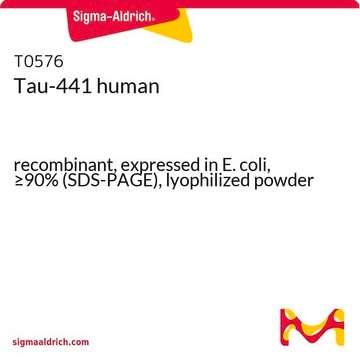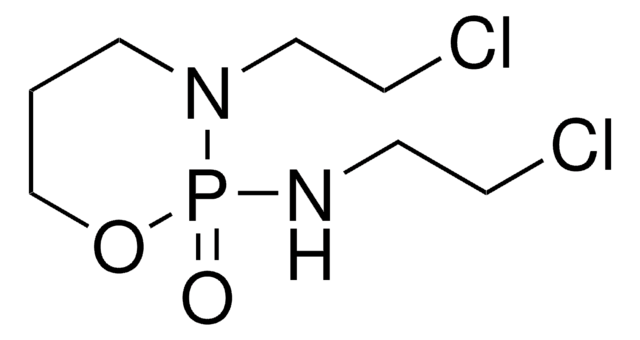B2635
Busulfan
analytical standard, for drug analysis
Sinónimos:
1,4-Butanediol dimethanesulfonate
About This Item
Productos recomendados
grade
analytical standard, for drug analysis
Quality Level
technique(s)
HPLC: suitable
gas chromatography (GC): suitable
mp
114-117 °C (lit.)
application(s)
forensics and toxicology
veterinary
format
neat
SMILES string
CS(=O)(=O)OCCCCOS(C)(=O)=O
InChI
1S/C6H14O6S2/c1-13(7,8)11-5-3-4-6-12-14(2,9)10/h3-6H2,1-2H3
InChI key
COVZYZSDYWQREU-UHFFFAOYSA-N
¿Está buscando productos similares? Visita Guía de comparación de productos
Categorías relacionadas
General description
Application
signalword
Danger
hcodes
Hazard Classifications
Acute Tox. 3 Oral - Carc. 1A - Muta. 1B - Repr. 1B
Storage Class
6.1C - Combustible acute toxic Cat.3 / toxic compounds or compounds which causing chronic effects
wgk_germany
WGK 3
flash_point_f
Not applicable
flash_point_c
Not applicable
Elija entre una de las versiones más recientes:
¿Ya tiene este producto?
Encuentre la documentación para los productos que ha comprado recientemente en la Biblioteca de documentos.
Los clientes también vieron
Nuestro equipo de científicos tiene experiencia en todas las áreas de investigación: Ciencias de la vida, Ciencia de los materiales, Síntesis química, Cromatografía, Analítica y muchas otras.
Póngase en contacto con el Servicio técnico













